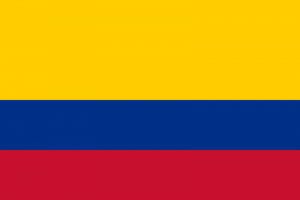Meet Luisa, regulatory analyst in Bogota, Colombia
Janvier 2024
Réalisé par Lucie Urien – International (![]() bureau 2023)
bureau 2023)

Meet Luisa, regulatory analyst in Bogota, Colombia
Janvier 2024
Réalisé par Lucie Urien – International ![]() bureau 2023
bureau 2023

« To introduce myself and my role in Pfizer I want to first give you a brief introduction about myself 🙂
My name is Luisa Garcia and I’m a Colombian Pharmacist graduated from Colombia National University. I graduated in December 2021 and I have experience in Pharmaceutical Quality Assurance and Regulatory Affairs. I did a QA internship in Boehringer Ingelheim during 1 year and then got hired in the Animal Health RA department in the same Boehringer Ingelheim. After finishing my 2 years experience y BI I searched for full time job options and found a RA position in Pfizer, where I did the interview and got selected. I currently work in the Hub Submissions Management team, which specializes in regulatory approvals of many countries around the world in certain regions (America Continent in my case) »
Could you describe a typical day or week in your role as a regulatory analyst at Pfizer?
« My day starts with checking the daily dashboards and my personal tracking. The most important thing to take care are the deadlines for every submission, since it is vital for the RA area to always comply with the dates and plans. After checking my dates and confirming everything is on track I follow my personal tracker again to start working in the documents for the most near delivery date document I have at the moment. We also have many team reunions and follow up with our team managers to plan the strategy and develop projects. »
What are the primary responsibilities or projects you handle within the regulatory affairs team?
« As a Pfizer Hub Submission Associate, my role is to prepare and hand Pfizer medicines documentation (dossier) to the responsible of each country to submit any *variation/ new approval (new license)/ renewal/ query* of these products and other submissions to their respective HA (Health Authority). The RA role mainly consist in submitting medicines dossiers (that include all the product information, like quality documentation, safety, summaries, regionals and more. Please refer to e-CTD dossier structure to see all the documents in detail). It is super important to be very precise and detailed with the documents since any HA refusal or auto (when the HA have questions about it) means the license will delay and therefore patients in the country won’t get the medicine as soon as they may need. The countries I’m in charge of with my teammates are all countries of South America. It is also important to have in mind each country regulation in medicines to plan the strategy the best way »
How do you collaborate with other departments, such as research and development, quality assurance, or marketing, to ensure compliance?
« Since the Bogota HUB is international, our main stakeholders are the RA Analysts of each country and their Regulatory Agency. Also for documentation, Quality Assurance is one of our main contacts to ask about any doubt. Usually, in other pharmaceutical laboratories a more close collaboration between different areas can be seen, however since Pfizer has a lot of employees and areas involved, this close approach gets reduced. »
What regulatory requirements or guidelines do you most commonly navigate in your role?
« e-CTD guideline by the FDA is the main standard and guide to better comprehend a medicine documentation requirement. Also is the structure that most of the countries HA are requiring nowadays. Otherwise it depends of each country legal documentation and needs which you will learn while starting your role 🙂 »
Can you walk me through the process of obtaining regulatory approval for a new drug or treatment?
« Variation/ New license approval/ Query or Auto (answer questions to the HA)/ renewals –> These are triggered whether by the HA of each country in case of queries and renewals or by Pfizer in case of variations or application for new licenses. Once the trigger is made, documentation starts preparing by the quality team at Pfizer to submit it to the HA. Once the documents are gathered together, these are submitted to the HA and a wait time to receive an answer is expected. The HA the communicates their decision whether rejecting and asking questions (query) or approving the request. »
What advice would you give to someone aspiring to work in regulatory affairs within the pharmaceutical industry?
What skills and experiences do you consider most valuable for success in this field?
« Definitely soft skills, like team work and communication capabilities! Effective presentations. »
What made you want to work in regulatory affairs?
« Personally, my aunt and brother are also pharmacists and i really liked what they were doing as pharmacists! Some people tend to think that pharmacists are only for the hospitals and community pharmacies but the job that is done in RA to help patients get medications safely and fast in their own countries is also a very amazing and cool job. Here in Colombia, the RA career path is really popular and also well paid. But what really attracted me was the possibilities of the pharmaceutical industries and self development that it includes. »
From Colombia, are you often in relation with the FDA or the EMA?
« In my case I’ve been in contact with the FDA and EMA since they are the common standards for other countries in regulatory matter, so you have to know the basic guidelines when you’re working as a Regulatory Affairs Associate. Additionally, we have also submitted documentation to USA and European countries for Pfizer products. »
Cap Indus est domiciliée à l’Université de Rennes
2 avenue Léon Bernard, Rennes (35000)
